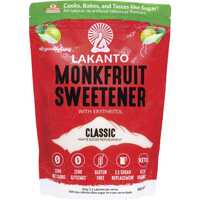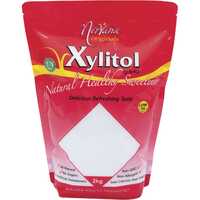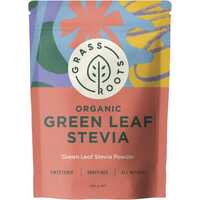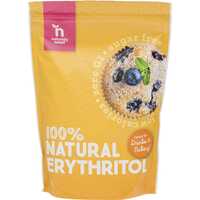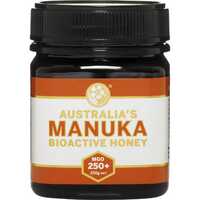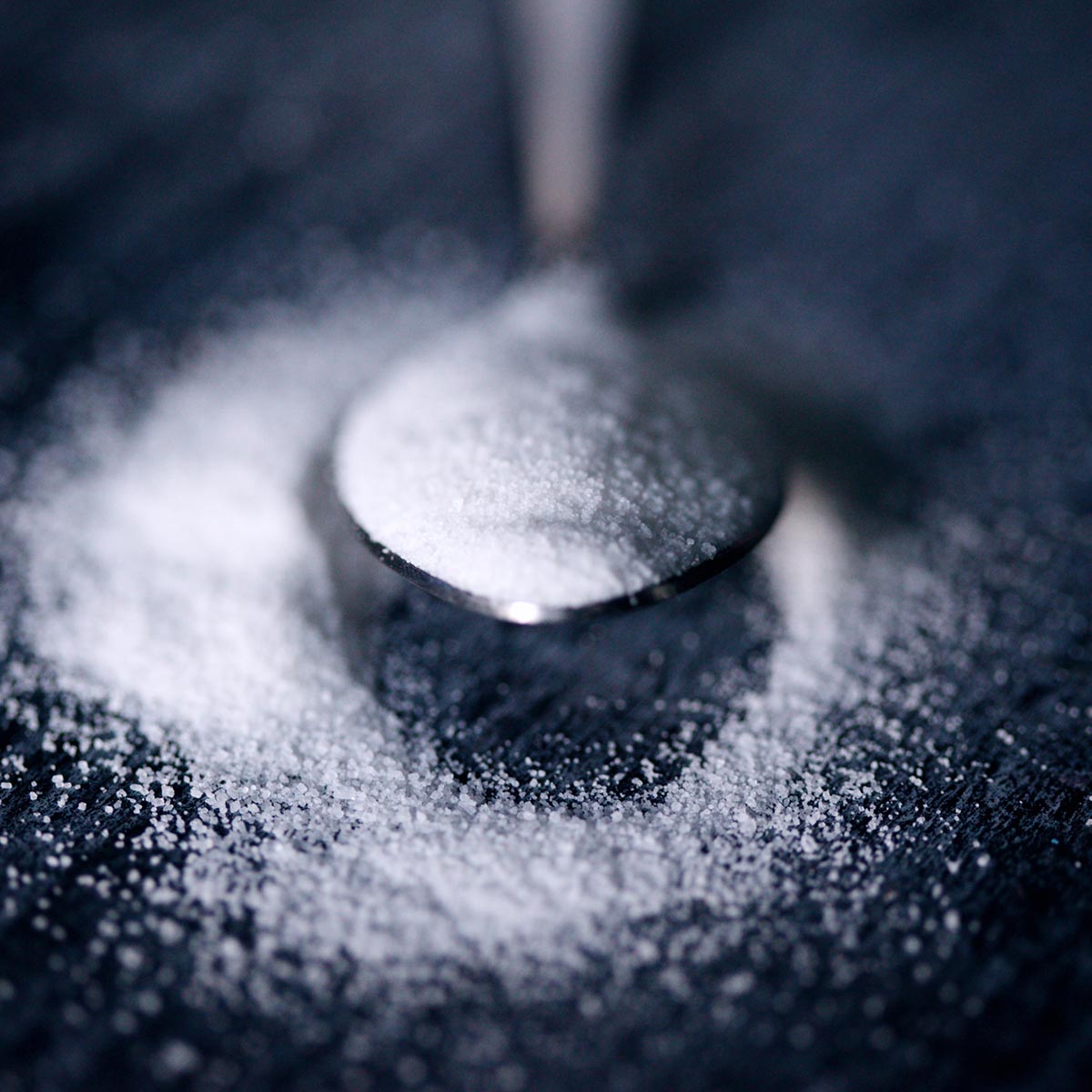Sugar is a small, widely available substance with a big, bold personality. It's the generic name for sweet, soluble carbohydrates, which come from natural sources and help fuel the human body. There are also refined sugars, however, which contribute little nutritional value and have been linked with numerous diseases. As one of our biggest food delights and greatest sources of addiction, sugar is a complex substance that continues to have a huge impact on the world.
As people learn more about the dangers of sugar consumption, they continue searching for healthy alternatives. Along with enjoying the simple sugars in fruits, vegetables, and grains, people want safe, natural sweetness without the risks associated with refined products. There are lots of great sugar alternatives on the market, including stevia, xylitol, erythritol, monk fruit, and honey.
In this article, we'll review the history of sugar, analyse its many problems, and look at the difference between natural and refined sugars. We'll also review healthy sugar alternatives and how you can integrate them into your life.
A Short History of Sugar
Sugar is a common ingredient of life, being found in fruit, honey, and the tissues of most plants. The simple sugar sucrose is highly concentrated in two particular plants: sugarcane and sugar beet. Sugarcane is the superior crop in terms of production, with this tall perennial grass having been cultivated and consumed by humans for many centuries.
Sugarcane is native to Southeast Asia and the tropical regions of the Indian subcontinent. The earliest evidence of sugar cultivation comes from the Kuk Swamp in Papua New Guinea, where it grew alongside taro and banana from as early as 8000 BC. It then spread across the Pacific and Indian Oceans, making its way to India around 500 BC. Sugarcane was cultivated in ancient India for animal feed, and it was also chewed by people to extract sweetness.
While sugar was used in traditional Ayurvedic medicine during this time, it remained a fairly unimportant crop by global standards. This was mostly due to practical reasons, with sugar difficult to transport and store in its original juice form. Once a method was devised to turn sugar into granulated crystals, the rest of the world started to pay attention. This technique spread slowly from India to China and Persia before entering the Islamic world and reaching the Mediterranean in the 13th century.
Sugar remained a rare and expensive commodity during the Middle Ages, but it became more accessible due to the growing slave trade. The Portuguese set up large sugar plantations in Brazil, with the new slave-based economy also spreading to the Caribbean. Once people in Europe had a taste for sugar, the world was changed for good. Demand for sugar helped to fuel the slave trade, with around 12,570,000 people shipped from Africa to the Americas between 1501 and 1867 to farm sugar, tobacco, and other crops.
The global production and trade of sugar had a huge effect on society, influencing the industrialisation of Britain and the formation of modern banking and insurance. Sugar remains a central part of the global food system and economy, with Brazil still leading the way with 40% of all production, followed by India, China, and Thailand. The global consumption of sugar is rising all the time, from 176 million metric tons in 2022/23 to an estimated 180.05 million metric tons in 2023/2024.
The Problem With Sugar
Over the centuries, sugar has become a food that everyone craves but no one really needs. While natural sugars are an essential part of the human diet, they contribute a small proportion of our collective sugar intake in the 21st century. Refined sugar is cheaper and more widely available than ever before, and it's been linked to numerous diseases and health conditions.
According to studies, refined sugar can lead to weight gain, as fructose consumption increases hunger levels and creates a desire for more sweet food. High-sugar diets are also linked with heart disease, which is the leading cause of death around the world. Added sugars have also been associated with other chronic disease risk factors, including diabetes and certain types of cancer.
To understand the problem with sugar, we need to grasp the difference between natural and refined sugars.
Natural sugar
Simple sugars, or monosaccharides, are the most basic units from which carbohydrates are built. Colourless, crystalline, and water-soluble, these organic solids are central to metabolism and energy production. Simple sugars include glucose, fructose, and galactose, which combine together to form large compounds like sucrose, lactose, cellulose, and starch. Natural sugars are rarely a problem, as they're consumed alongside other components that slow down digestion. This helps to keep your metabolism stable over time and prevents the rapid blood sugar spikes associated with weight gain, diabetes, and insulin resistance.
Refined sugar
Refined sugar products, or table sugar, are a combination of glucose and fructose disaccharides. While refined sugars come from a natural source, all other compounds are removed, and only the sugar remains. This has a huge impact on how it's absorbed, with your body breaking it down rapidly as your insulin and blood sugar levels skyrocket. While refined sugar gives you lots of short-term energy, it doesn't last long, and the calories consumed are completely empty. It's also much easier to eat large amounts of refined sugar, which further increases the risk of heart disease and weight gain.
Natural Sugar Alternatives
As we learn more about the dangers of sugar, people are discovering healthy sugar alternatives. From exotic plants with ancient origins to new extracts based on natural compounds, the following sugar substitutes are among the very best:
Stevia
Stevia is a natural sugar substitute made from the leaves of the stevia plant. It provides an incredibly concentrated source of sweetness, being 50–300 times sweeter than table sugar. While stevia can taste slightly bitter compared to refined sugar, it has no carbohydrates, calories, or artificial ingredients. Stevia can also help to manage cholesterol — lowering total cholesterol, reducing "bad" LDL cholesterol, and increasing "good" HDL cholesterol with no known side effects.
Stevia tastes a little bit like menthol, which makes it ideal for cereals, teas, and even coffee. While you can bake cakes and cookies with stevia, depending on the product and amount, it may give your foods a licorice-like aftertaste. If you don't like stevia's unique taste at first, you'll probably get accustomed to it very quickly. People in South America and Asia have been using stevia to make tea for decades, and the Western world is finally starting to pay attention.
Xylitol
Xylitol is a popular sugar alternative found in numerous fruits and vegetables. This natural sugar substitute is actually a sugar alcohol, with its chemical structure combining traits of sugar molecules with traits of alcohol molecules. Xylitol has a similar sweetness to standard table sugar, but it contains 40% fewer calories and doesn't spike blood sugar or insulin.
Unlike refined sugar, it contains no fructose whatsoever, which makes it ideal for people with diabetes, obesity, and other metabolic problems. Xylitol can also help to prevent tooth decay by reducing levels of bad bacteria in your mouth by 27–75%. It's important to keep this substance away from your family pet, however, with xylitol being very toxic to dogs. If your dog eats a product containing xylitol, please contact your vet immediately.
Erythritol
Erythritol is a popular sugar alternative with a sweet, neutral taste. Just like xylitol, this low-calorie sweetener is a natural sugar alcohol found in fruits and vegetables. However, erythritol has roughly one-tenth the calories of xylitol, which makes it ideal for some situations. For people dealing with obesity, diabetes, or other issues related to metabolic syndrome, erythritol can be an excellent dietary alternative to sugar.
Erythritol is also very tooth-friendly, as it can't be metabolised by oral bacteria. Similar to xylitol but even better, it has potent antibacterial effects and offers protection against tooth decay. Erythritol is not ideal for everyone, however, with some people experiencing nausea, stomach rumbling, and other symptoms of erythritol sensitivity.
Monk fruit
Monk fruit extract is a natural product that's 100–250 times sweeter than refined sugar. With zero calories and beneficial antioxidant properties, this natural sugar alternative has become increasingly popular over recent years. Monk fruit comes from Southeast Asia, where it's also known as luo han guo or Buddha fruit. It's been used for centuries in traditional Chinese medicine, but once again, the Western world has only just started paying attention.
Monk fruit sweetener is created by removing the seeds and skin of the fruit and crushing it down to collect the juice. The liquid is then dried into a concentrated powder, which can be applied to cereals, used for baking, or added whenever sugar is normally used. Along with a complete lack of calories, monk fruit has shown potent antioxidant and anti-inflammatory qualities in animal studies.
Honey
Honey has always enjoyed a special place in the human story. As our original source of sweetness, people have been consuming honey long before refined sugar was even invented. Honey is essentially pure sugar, but it also comes with lots of nutritional goodness. While eating honey is not a good way to reduce your calorie intake, what you ingest is far from empty. Along with small amounts of vitamins and minerals, honey contains lots of antioxidants and has fantastic antibacterial properties.
Honey raises your blood sugar levels like refined sugars, but due to the antioxidants, it offers protection against metabolic syndrome and type 2 diabetes. Consuming honey may also be good for your heart, with regular consumption helping to lower blood pressure, improve blood fat levels, regulate heart rhythms, and prevent the death of heart cells. Honey is also absolutely delicious, and it makes a great substitute for sugar in cereals, teas, and many baked goods.
If you're looking for natural sweetness without the health risks associated with refined sugar, you've come to the right place. Browse our website for a great range of stevia, xylitol, erythritol, monk fruit, honey, and other fantastic natural sweeteners. At Healthy Being, we're dedicated to natural products, low prices, and friendly customer service.


 Certified Organic
Certified Organic Vegan Friendly
Vegan Friendly  Vegetarian
Vegetarian Organic Ingredients
Organic Ingredients Dairy Free
Dairy Free Gluten Free
Gluten Free Keto Friendly
Keto Friendly


























